Trump Commemorates Charlie Kirk’s Birthday With Presidential Medal of Freedom
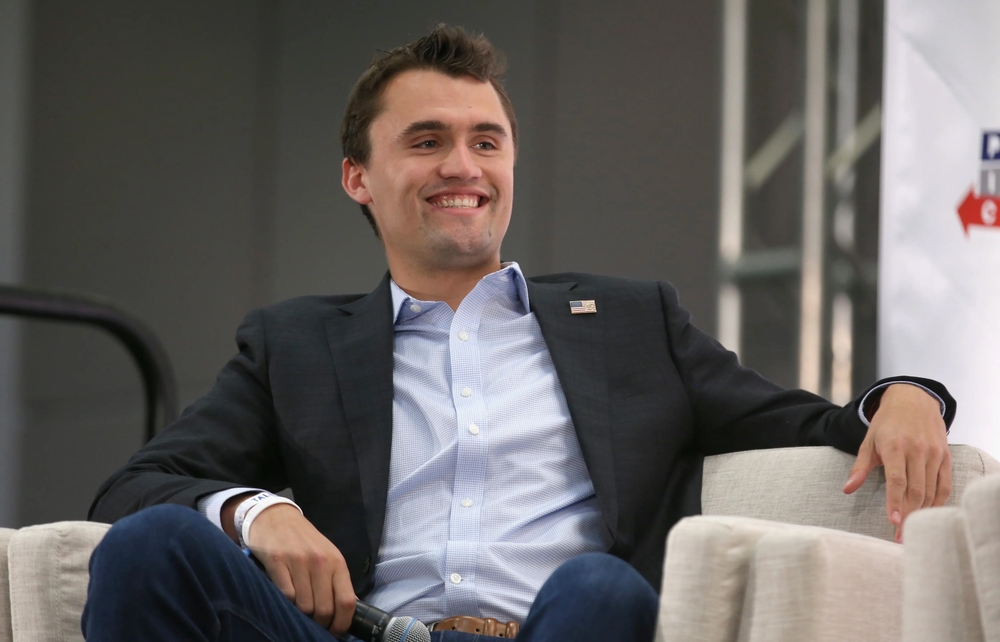
Under the bright October sun, the Rose Garden at the White House became the stage for one of the most emotionally charged ceremonies of Donald Trump’s second term. On October 14, 2025 a date that would have marked Charlie Kirk’s 32nd birthday the president posthumously awarded the conservative activist the Presidential Medal of Freedom, the nation’s highest civilian honor. The event fused political pageantry with personal grief, marking both a tribute to Kirk’s influence on the modern conservative movement and a deepening of the administration’s efforts to frame his assassination as a rallying point against what it calls “radical left extremism.”
Erika Kirk, his widow, stood before an audience of cabinet members, lawmakers, and media figures as she accepted the medal. Her voice trembled as she spoke about her late husband’s devotion to his country, his faith, and his mission to galvanize young conservatives through Turning Point USA, the organization he founded at just 18 years old. President Trump, freshly returned from brokering a ceasefire in the Middle East, described Kirk as a “martyr for freedom” whose death had not only shaken the conservative base but also reshaped the political conversation around violence, speech, and national unity. The ceremony, held on a day officially proclaimed a “National Day of Remembrance for Charlie Kirk,” was as much about commemoration as it was about defining the political moment in Trump’s America.
A Ceremony Steeped in Symbolism
The presentation of the Presidential Medal of Freedom has always been steeped in symbolism, but Trump’s decision to honor Charlie Kirk posthumously gave the ceremony an unusually charged political dimension. The medal, first established by President John F. Kennedy in 1963, is typically reserved for figures who have made extraordinary contributions to the nation’s security, culture, or peace. Trump, however, has often used the award to recognize political allies and cultural icons aligned with his worldview. Previous recipients during his presidency have included Rush Limbaugh, Rudy Giuliani, and golf legend Tiger Woods. In honoring Kirk, Trump underscored not only his personal loyalty but also his significance to the conservative youth movement that helped secure Trump’s reelection.
Trump’s remarks were emotional and uncharacteristically somber, painting Kirk as both a visionary and a casualty of ideological warfare. “We’re here to honor and remember a fearless warrior for liberty,” Trump said, echoing a phrase he has used repeatedly since Kirk’s death.
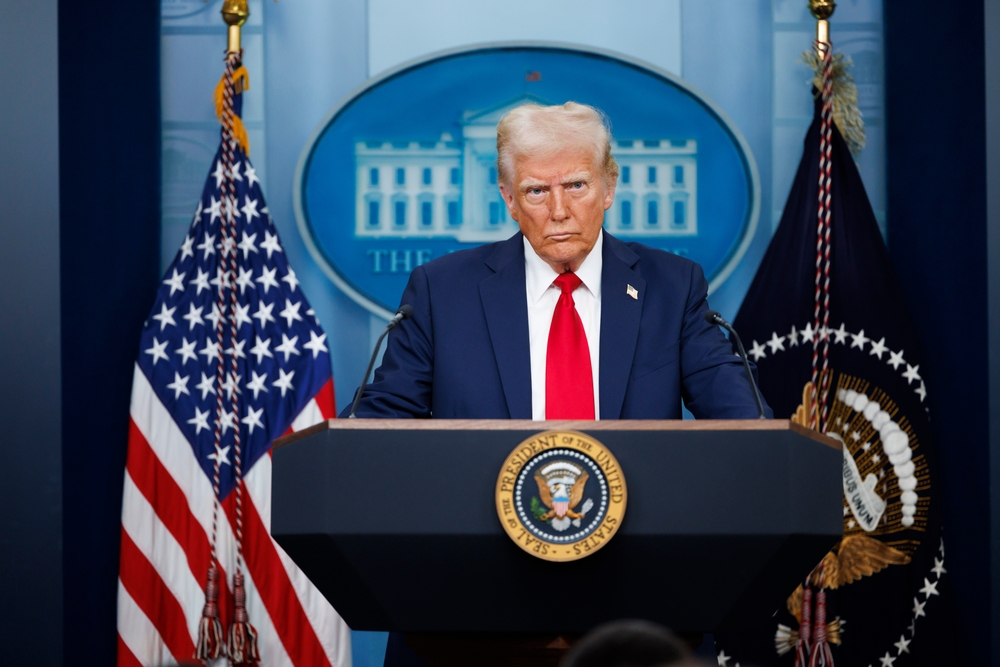
The president, visibly moved, recounted how he “raced back halfway around the globe” from Israel to ensure he would present the medal in person on what would have been Kirk’s birthday. The decision to hold the ceremony outdoors in the newly renovated Rose Garden, despite early rain forecasts, was described by Trump as “divine providence” a sign, he said, that “God was watching.”
The event drew a who’s who of the conservative world: Vice President JD Vance, Argentine President Javier Milei, several cabinet members, Republican congressional leaders, and conservative media figures such as Tucker Carlson and Sean Hannity. The setting carried echoes of past Trump-era rallies, with bursts of applause punctuating solemn tributes. Yet for many observers, it also symbolized how Kirk’s death had become an ideological touchstone, a moment that his supporters saw as proof of the stakes in America’s polarized political climate.
Charlie Kirk’s Rise and Influence
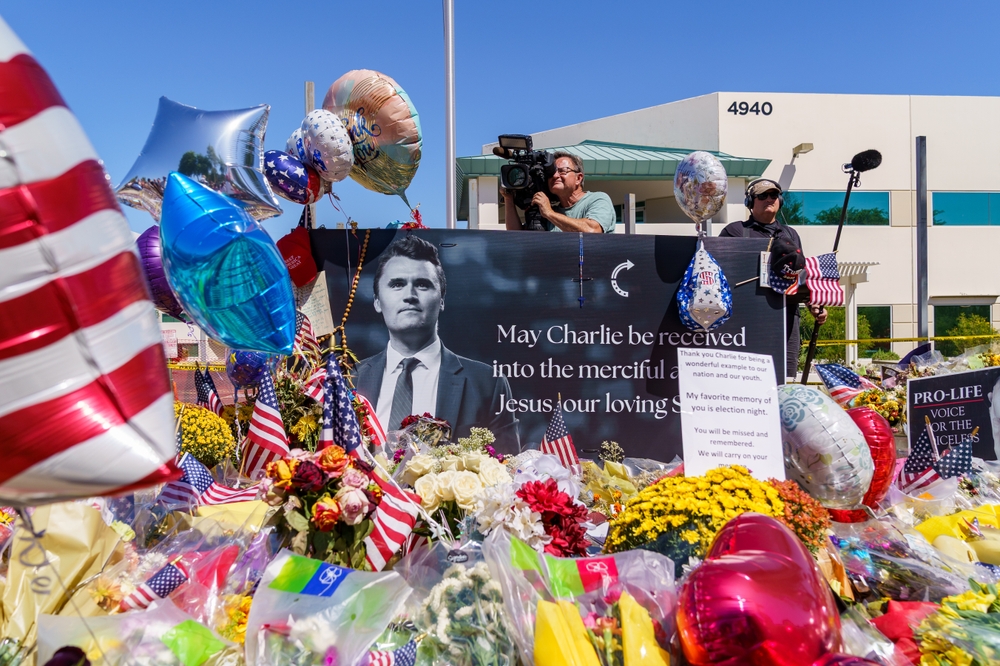
Charlie Kirk’s journey from suburban Illinois to the center of American conservative politics is one of meteoric ascent. Born in 1993, Kirk founded Turning Point USA in 2012 while still a teenager, building it into a powerful network aimed at mobilizing young conservative voters. The organization’s formula was simple but effective: it combined campus activism, social media engagement, and celebrity-driven political rallies to counter what Kirk called “the left’s cultural monopoly” on universities. By the 2024 election, Turning Point USA had become one of the most influential conservative advocacy groups in the country, credited by Trump and his allies with helping secure key victories among younger voters.
Kirk’s influence extended beyond the college circuit. He became a fixture on conservative media, hosting podcasts and conferences that blended politics, religion, and pop culture. He championed free markets and limited government but also delved into culture war issues, often courting controversy with his criticisms of LGBTQ+ rights, affirmative action, and progressive racial policies. To his supporters, he was a truth-teller who challenged liberal orthodoxy; to his critics, a provocateur whose rhetoric deepened divisions. His political ascent reflected a broader shift in conservative strategy one that embraced populist energy, digital activism, and a direct line to the Trump White House.
That closeness was mutual. Trump publicly credited Kirk’s work with Turning Point USA for helping him reclaim the presidency in 2024, calling him “one of the best political minds of his generation.” When Kirk was assassinated in Utah while speaking at a university event, the news reverberated across the political landscape. His death at 31 was immediately politicized, with Trump and his allies portraying it as an attack on free speech and conservative expression. The shooter was swiftly apprehended, but authorities later stated there was no evidence of organizational ties or ideological coordination behind the act a conclusion that did little to calm the escalating rhetoric.
The Ceremony and Its Message
Trump honoring Charlie Kirk with Presidential Medal of Freedom on what would be his 32nd birthday https://t.co/OZLJE0OPl4 pic.twitter.com/dL4SBHHInh
— The Oakland Press (@TheOaklandPress) October 14, 2025
During the Rose Garden ceremony, the emotional centerpiece was Erika Kirk’s speech. With composure and heartbreak mingled, she thanked the president for honoring her husband and shared anecdotes that brought moments of warmth to the somber gathering. She described her husband’s “servant’s heart” and his willingness to “love people when it was inconvenient.” She even shared lighthearted stories from their children, including her toddler son’s attempt to “become the man of the house” after his father’s death. The audience responded with both laughter and tears a moment of rare intimacy amid the political theater.
Erika’s remarks also offered subtle resistance to the public image of her husband. When Trump repeated his claim that Kirk “loved his enemies,” she smiled and gently corrected him: “He did pray for his enemies,” she said, drawing laughter from the audience.
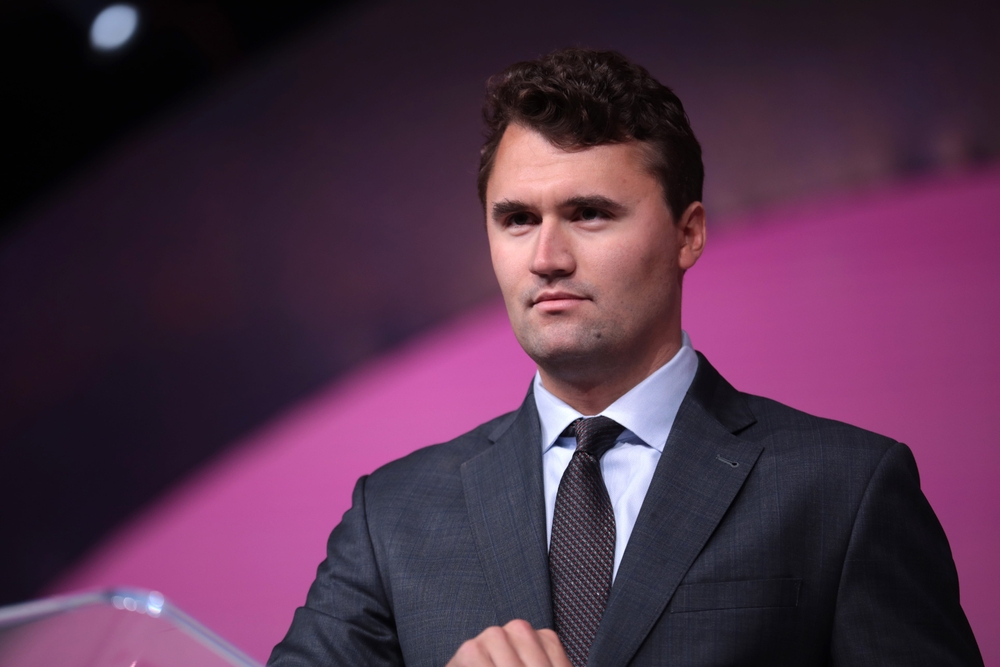
That moment of candid honesty humanized the proceedings, reminding attendees that behind the political icon was a complex and deeply human figure. She closed her speech by saying, “God began a mighty work through my husband, and I intend to see it through,” echoing her new role as CEO of Turning Point USA.
The medal’s presentation was followed by the signing of a proclamation establishing October 14 as a National Day of Remembrance for Charlie Kirk. Trump described it as a day to honor “all those who stand fearlessly for freedom in the face of hatred and violence.” Yet the proclamation also carried clear political undertones. The administration announced simultaneous actions against individuals accused of mocking Kirk’s death, including the revocation of visas for six foreign nationals. Civil liberties groups swiftly criticized the move as an overreach and an assault on free speech, highlighting the delicate balance between honoring the fallen and weaponizing their memory.
Political Context and the Crackdown on the Left
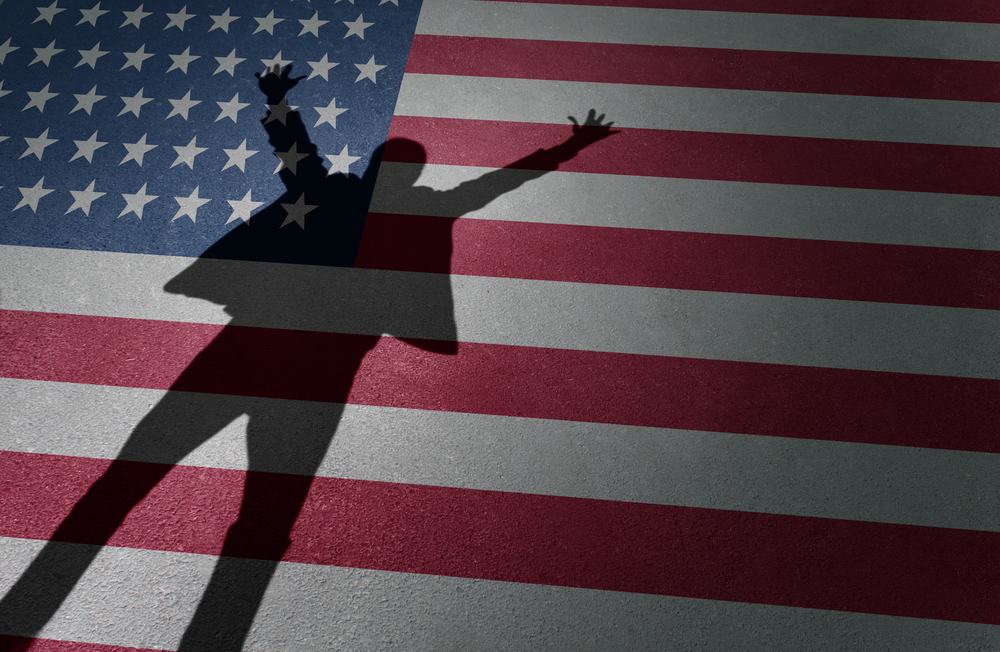
The ceremony came at a moment of heightened tension in American politics. In the weeks following Kirk’s assassination, the Trump administration launched an expansive investigation into left-wing organizations accused of “fostering political violence.” The effort, coordinated by the Department of Homeland Security, the FBI, and the IRS, was presented as a crackdown on extremism. Critics, however, viewed it as a politically motivated campaign to silence dissent and distract from rising right-wing violence.
Trump used the Rose Garden podium to link Kirk’s death directly to this new initiative, calling it part of a “moral crusade” against radicalism. “We’re done with the angry mobs,” he said, as sirens blared faintly in the background. “We’re not going to let our cities be unsafe.” The comment drew cheers from attendees but raised eyebrows among journalists and policy experts. Political scientists noted that such rhetoric echoed the president’s earlier law-and-order messaging, which had historically resonated with his base while alienating moderates concerned about democratic norms.
Independent analysts have warned that framing political violence as exclusively left-wing misrepresents the data. Studies by the Center for Strategic and International Studies show that since 2015, the majority of ideologically motivated attacks in the U.S. have come from the far right. Nonetheless, Trump’s administration has focused its attention squarely on left-wing activism, a pattern that continued even in the context of Kirk’s memorialization. The political calculation was clear: by tying Kirk’s martyrdom to the broader narrative of conservative persecution, the president sought to galvanize his supporters ahead of the next election cycle.
A Divisive Legacy and a Nation’s Reflection

Even in death, Charlie Kirk remains a polarizing figure. His activism inspired a generation of conservative students, many of whom credit him with giving them a voice on campuses they felt were hostile to their beliefs. Yet his critics argue that his confrontational style and inflammatory remarks helped normalize divisive discourse. Some of his past comments including his dismissals of the Civil Rights Act and criticism of George Floyd continue to fuel debate about the line between free expression and hate speech.
Erika Kirk, now leading the organization her husband built, faces the challenge of steering it through this turbulent legacy. Early signals suggest she intends to balance continuity with recalibration. Her speeches have emphasized faith, civility, and the idea of “servant leadership,” a phrase she used repeatedly during the medal ceremony. Allies describe her as more measured than her husband, while opponents question whether Turning Point can shed its combative image. Either way, the organization’s future will likely mirror the broader evolution of American conservatism itself one struggling to reconcile populist fervor with the need for broader appeal.
For Trump, the event accomplished multiple goals. It reaffirmed his bond with the conservative base, honored a fallen ally, and projected an image of moral leadership amid controversy. Yet it also reignited questions about how his administration defines patriotism and dissent. The Presidential Medal of Freedom, once a largely apolitical symbol of national gratitude, has in recent years become a mirror of America’s cultural and ideological divides. The image of Erika Kirk holding the medal aloft, framed by flags and cameras, captured that paradox perfectly an act of personal mourning woven into the fabric of political theater.
Memory and Meaning
Charlie Kirk’s posthumous Medal of Freedom ceremony was more than a memorial; it was a reflection of how modern America narrates its heroes. For Trump’s supporters, it cemented Kirk’s place as a martyr for conservative ideals and a rallying figure in an age of polarization. For others, it served as a reminder of how the symbols of national honor can be politicized in ways that deepen existing divides. Yet beyond the partisan interpretations, the event highlighted an enduring truth about democracy: that the figures who shape it, for better or worse, continue to influence its trajectory long after they are gone.
As the sun set over the Rose Garden that day, Erika Kirk’s final words lingered in the air: “To live free is the greatest gift, but to die free is the greatest victory.” It was a line that blended faith, conviction, and loss encapsulating not only her husband’s legacy but also the complexity of the moment itself. Whether remembered as a patriot, a provocateur, or a symbol of America’s fractured discourse, Charlie Kirk’s story now occupies a permanent, if contentious, place in the nation’s political memory.
Loading...

